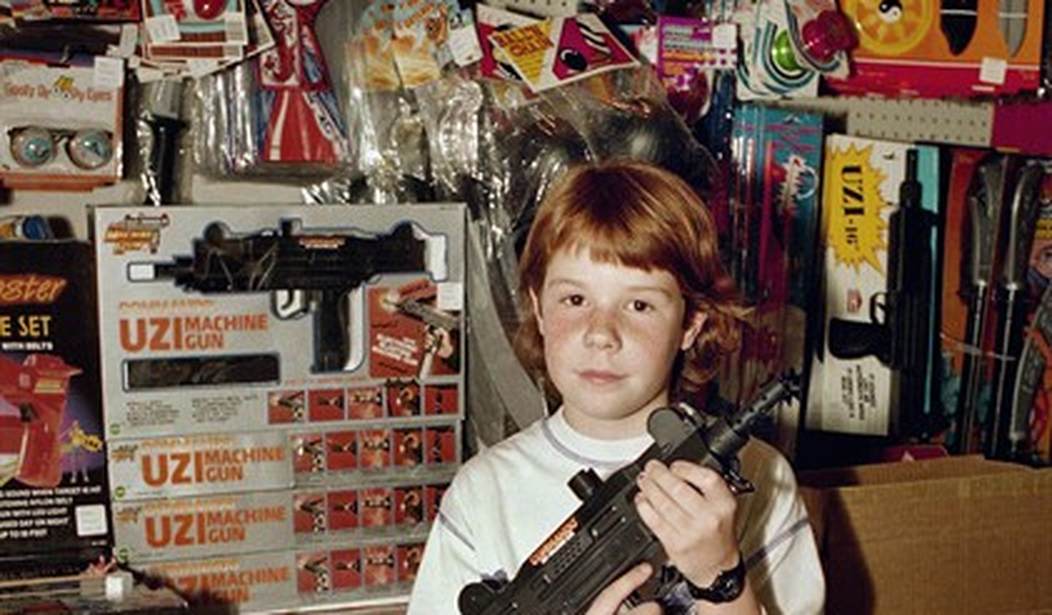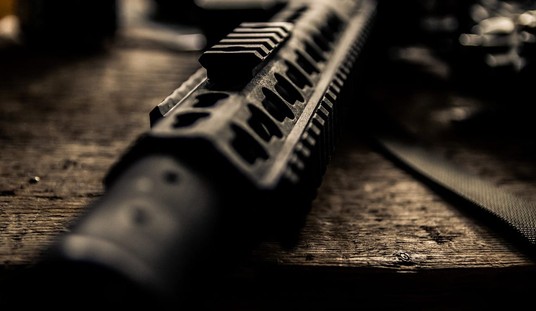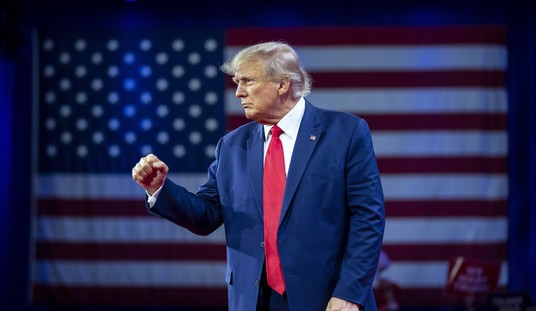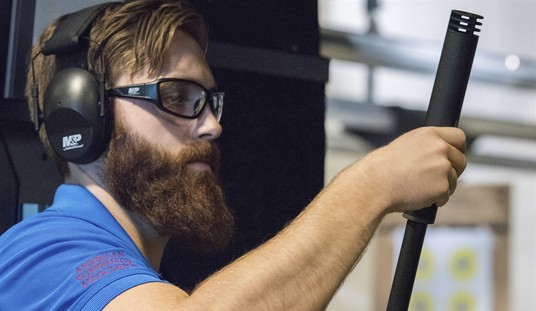For most of us, toy guns were a routine part of our childhood. It was just understood that most young boys would get toy guns and a fair number of girls would get them as well, I suspect.
Yet some time back, people started getting up in arms about kids playing with toy guns. They made all kinds of bizarre arguments claiming that playing with guns leads to actual violence with them, all without acknowledging the millions upon millions of kids who played with them then never hurt a living soul in their lives.
The issue hasn't gone away, either.
Over at the anti-gun Washington Post, they're taking the question of whether it's safe for kids to play with guns seriously.
Stroup and his wife didn’t want their son to be desensitized to guns; anything resembling a real one, they decided, was out of the question. But given that guns are already part of their child’s world, “I don’t know that it’s helpful to say, ‘in our house, we are going to have a rule where you cannot pretend to shoot at anyone ever, with anything.’ I don’t think that’s realistic,” Stroup says. Colorful toy guns or water guns feel like a reasonable compromise, he says, when their son is a bit older. “Kids are going to act things out, especially when, unfortunately, we’re emphasizing to them how much they need to be scared of these things,” he says. “He’s not going to sit down and journal about it; he’s 3.”
Should parents let their kids play with toy guns? Kirsten Nottleson, a parent and teacher educator and consultant of 30 years, says the issue has become a more frequent concern for parents: They’re worried because their kids are drawn to toy guns, or won’t stop engaging in pretend shooting battles.
“Parents are hearing about gun violence on almost a daily basis,” she says, “and of course we’re terrified. We don’t want our child to be the victim. We also don’t want our child to be the one who does it.” So when parents see their kids playing with toy guns, or pretending to shoot someone, she says, “our mind rushes forward and says, ‘oh, what does that mean?’”
This is seriously ridiculous. It's not even a question.
Once, you would find that pretty much every criminal in prison played with toy guns, but that was because everyone growing up played with them. It's like finding a correlation between drinking water and prison. It's there, but it's useless because the practice is so common you can make that same correlation among law enforcement, judges, teachers, and so on.
Toy guns have largely fallen out of favor in many ways, in part due to the hysteria. In fact, while seeking toy guns for my kids, local toy stores were useless. I had to go online to get them, all because parents got butt-hurt over toy guns.
Yet even the WaPo has to acknowledge reality.
Chazz Lewis, an early childhood educator and parent coach widely known as “Mr. Chazz” to his online following, used to be firmly against pretend gun play, “until I started to actually work with children and learned more about it,” he says. Over the past 14 years, “I saw that a lot more play therapists and teachers who work with children have more of a nuanced way of thinking about it.”
Now Lewis approaches pretend gunplay as a way to observe what a child is working through and an opportunity to reinforce lessons about awareness, consent and boundaries. He asks kids: How are the people around them responding to the game? Do they feel safe, are they having fun? Rather than shutting down this kind of play, he says, he sees it as an invitation to connect.
It can be challenging, he says, for parents to understand the divide that lies between a child pretending to shoot a toy gun and the adult watching them do it. Children aren’t thinking about the social or political context of guns, Lewis says; they can’t yet conceptualize the horror that guns can inflict. Meanwhile, an adult might have difficulty thinking of anything else.
Research has not established a link between playing with pretend weapons and future violence — but still, when we see a child pretending to shoot a gun, “We can get triggered to that survival state,” Lewis says. “We are not operating from a place that helps children thrive.”
The piece then goes on to talk about Nottleson leading parents in "gun play," a practice where parents take household objects and pretend they're firearms.
And a large number of parents find it fun.
That's because playing with toy guns is fun. There's pretty much no risk of anyone getting hurt, no fear as you'd find in combat, and people are just wired to enjoy the idea of hunting other people when no one is going to get hurt. Especially when you're the hunter and the hunted.
But no matter how much you play with guns, that alone won't make you a killer. It doesn't "desensitize" you to the point that you don't blink about taking someone's life.
In fact, playing with guns can be a way to teach something important: Gun safety.
When I was a kid, my father insisted I follow the Four Rules with even toy guns. I wasn't to point them at people, I wasn't to put my finger on the trigger until I was ready to fire, and I was to treat them not just as loaded guns but real ones as well. Knowing my target and what was beyond it was also included, but not very practical.
Yet the first time I picked up a real gun without someone supervising me, I remembered every word. I knew how to handle that firearm safely and what not to do.
What annoys me is that every so often, we see an article like this one asking the question. Universally, they find that there's no link between playing with toy guns and misusing real ones later in life, and yet this idea persists.
In part because places like the Washington Post don't push this nearly as much as they do the idea that actual guns lead to crime.








Join the conversation as a VIP Member